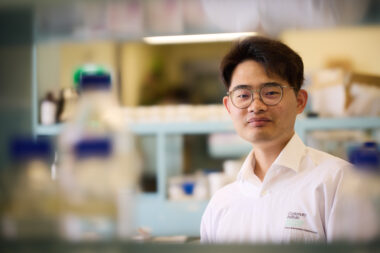The consortium of Queensland universities includes The University of Queensland, Griffith University, Queensland University of Technology, University of Southern Queensland and the University of the Sunshine Coast.
BRISBANE, Queensland. PsiQuantum will partner with five leading universities in Queensland, after signing a memorandum of understanding, to help support the growing demand for skills in the quantum computing economy and to explore research projects in adjacent fields. This collaboration will provide a framework for academic institutions in Australia to offer opportunities for academic, postgraduate, and undergraduate placements that will attract and retain leading Australian and global talent.
Within this partnership, PsiQuantum will work closely with the five universities to build out targeted educational programs to meet the skills requirements for the rapidly growing sector of quantum computing and other advanced technology industries. These skill sets cover a wide variety of roles from that of quantum applications engineers, mechanical, optical, and electrical engineers; software developers, and technical lab staff.
The educational programs will draw input from PsiQuantum’s teams in the development of study modules, courses, degree, lectures and industry training; providing pathways for traditional STEM careers like engineering and software development into the quantum sector, upskilling diverse scientists to work on critical applications of quantum computer technology, and preparing quantum physicists for the industry revolution. This partnership will also include areas of joint research interest and expand these into larger projects as they progress.
Quantum computers hold the promise of re-engineering how critical industries function, from modeling molecular structures at the subatomic level to bringing drugs to market faster to designing new catalysts to help supercharge the efforts in solving climate change and decarbonizing our planet. By targeting the current and future skills needed within the quantum computing sector and the anticipated fields of professional specialization, PsiQuantum and the Queensland universities will be ensuring that Australian talent is ready and able to support the burgeoning industry and PsiQuantum’s first utility-scale, quantum computer in Brisbane, Australia.
PsiQuantum CEO & co-founder, Prof. Jeremy O’Brien, is himself a beneficiary of Australia’s leading quantum computing efforts, having been a postdoc, PhD student and undergraduate at the Universities of Queensland, NSW and WA respectively. At the University of Queensland, Prof. O’Brien worked with Prof. Andrew White and Prof. Geoff Pryde, PsiQuantum’s Senior Director of Technical Partnerships (on leave from Griffith University), together with many others across the Australian ecosystem, on foundational research in the development of photonic quantum computing.
Prof. O’Brien said: “Australia and Queensland have been world leaders in the field of quantum computing for decades, and this partnership builds upon that foundation. This collaboration will help ensure that Australia is developing the necessary skills and driving research to continue leading this field for decades to come.”
Professor Deborah Terry, Vice-Chancellor and President, The University of Queensland said: “Students starting high school this year will graduate into a world with utility-scale quantum computers. We will work with PsiQuantum across the education spectrum - from schools, through TAFE, to universities - to prepare our students for future jobs in quantum and advanced technologies. Our researchers are also incredibly excited to explore and find projects of common interest with PsiQuantum, taking full advantage of this unique opportunity.”
Griffith University Vice Chancellor and President, Professor Carolyn Evans, said: “Griffith welcomes the MOU with PsiQuantum. The partnership brings opportunities for more Queensland students to build future-focused STEM careers and builds on more than 20 years of leading research in quantum technology here at Griffith and across the state.”
This collaboration aligns with the objectives of Queensland’s Quantum and Advanced Technology Strategy and the Australian National Quantum Strategy in fostering a skilled and growing quantum workforce.
About PsiQuantum:
PsiQuantum was founded in 2015 and is headquartered in Palo Alto, California. The company’s mission is to build and deploy the world’s first useful, fault-tolerant quantum computing systems. PsiQuantum’s photonic approach enables it to leverage high-volume semiconductor manufacturing and existing cryogenic infrastructure to rapidly scale its systems. Learn more at www.psiquantum.com.
Contact details:
Charlie Moore: 0452 606 171


